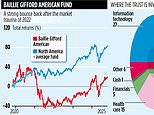Welcome back to the podcast, the show where I cover all the latest strategies and current events related to e-commerce and online business.
In this episode, I interview a student from my Create a Profitable Online Store course, Christina Brooks Potts, who built her own successful skincare company from scratch—Authenticego.com. Her story is truly inspirational.
But before we begin, I want to let you know that tickets for Seller Summit 2026 are now on sale at SellerSummit.com. If you sell physical products online, this is the event you should attend. Unlike most conferences filled with high-level fluff and inspirational stories, Seller Summit focuses on tactical, step-by-step strategies that you can implement in your business immediately.
Every speaker is an active e-commerce entrepreneur, deeply involved in running their own stores, managing inventory, dealing with suppliers, and scaling real businesses. No corporate executives, no consultants. Plus, to keep it intimate, we cap attendance at around 200 people so you can have real conversations and build meaningful connections.
We’ve sold out every year for the past nine years, and I expect this year to be no different. The event is happening April 21st to 23rd in Fort Lauderdale, Florida. If you’re doing over $250K or $1 million in revenue, we also offer a private mastermind for high-level sellers.
Right now, tickets are at their lowest price ever, so if you want in, head over to SellerSummit.com and grab yours today.
—
### Interview: Christina Brooks Potts – Founder of Authentic Ego
Welcome to the My Wife Quit Her Job Podcast. Today, I’m thrilled to have Christina Brooks Potts on the show. Christina joined my Create a Profitable Online Store course back in 2021. After our Zoom calls, she worked hard for the next four years building her skincare business, AuthenticEgo.com.
Authentic Ego is a skincare company that offers safe, evidence-backed formulas specifically designed for hormonal, sensitive, and acne-prone skin. Christina launched the brand in 2023 and has experienced remarkable growth—including attracting interest from venture capitalists.
I don’t believe I’ve ever had a student on the podcast selling skincare products before, so I’m eager to hear Christina’s story.
Welcome, Christina! How are you doing today?
**Christina:** Thanks for having me back, Steve! It feels like just yesterday we spoke, but I can’t believe how fast the last four years have flown by. I’m excited to catch up.
—
### How Did You Come Up With the Idea for a Skincare Brand Focused on Acne-Prone Skin?
**Christina:** It actually started about 15 years ago when I was 22, working at Sephora in downtown Toronto at the Eaton Centre—the busiest Sephora in the world. I worked in skincare because I was always nerdy about ingredients and loved reading labels.
I noticed a pattern of women coming in with hormonal acne in their late 20s and early 30s—a second resurgence of acne after teenage years. Most women experience this, but there was a real gap in the market for skincare products tailored to them, especially products that addressed not just acne but also aging concerns, sensitivity, rosacea, eczema, fungal acne, and more.
Most acne products are one-note, using strong actives like benzoyl peroxide or salicylic acid, which aren’t always good for sensitive, acne-prone skin based on the physiological processes involved.
With my background in pharma and science, I dove deep into research and realized this gap in the market still hadn’t been filled after 15 years. That’s when I decided I needed to build this brand.
—
### What Is Your Educational Background?
**Christina:** I don’t have a biochemical engineering background. My undergrad was in political science and law. However, I took a professional two-year pharmacology course in Canada, which involved university-level accreditation in anatomy, physiology, pathophysiology, and pharmacology.
This gave me a deep understanding of drugs, molecules, and the processes happening in skin. Combined with hands-on experience at Sephora, I was able to hone my research skills, which helped me develop formulas myself.
—
### How Did You Create Your Skin Cream? What Were the Steps?
**Christina:** Generally, skincare companies fall into two buckets: marketing-led and R&D-led.
Most brands are marketing-led—they start with a vibe or trend, then contract manufacturers give them an existing formula with some actives added for SEO or trends. These products are often very similar and not problem-solution focused.
On the other hand, our approach is research-driven and problem-solution focused. We identify the key drivers of early acne development and formulate products based on that science. This process is research-intensive and time-consuming.
Since many chemists have preconceived notions of what should be used, innovation is often stifled. I developed the formulas and chose active ingredients myself based on research.
—
### Do You Have Your Own Lab?
**Christina:** I don’t have my own lab. I do all the preliminary R&D—deciding on the actives, emulsifiers, preservatives, and basically the recipe. Then I work closely with a chemist who has a biochemistry background and her own lab in California.
She builds the recipe in the lab, troubleshoots, manufactures, fills, and packs the products. I send over bottles and packaging from Korea, and they handle fulfillment to our warehouse in Texas.
—
### How Did You Find Your Chemist?
**Christina:** I spoke with 30 to 40 chemists when starting, and many told me my idea wasn’t feasible or was too restrictive. But one chemist with 40+ years of experience loved the innovation and research behind the brand and wanted to work with me.
It took months of intensive, forensic Googling to find her—before tools like ChatGPT existed. The best people in the industry often don’t have flashy websites because they don’t need them.
—
### What Were Your Startup Costs?
**Christina:** It was about $80,000 USD to get started. That included formulation, packaging from Korea, and running a small initial batch of about 1,000 units for two products.
I cashed out my retirement and savings from working in tech and pharma consulting to fund this.
—
### How Did You Validate the Idea Before Spending So Much?
**Christina:** I did about two years of market research, primarily using Reddit. Reddit communities are real and niche, providing deep insights into problems people face with acne-prone skin.
I joined subreddits focused on fungal acne, skincare addiction, and others to understand customers’ needs firsthand. I didn’t start with a pre-built community or email list—I launched cold, relying on SEO and organic discovery.
—
### Marketing Without Social Media?
**Christina:** Initially, I didn’t use social media much because I’m not someone who’s active online. But after launch, our first customers left reviews and mentioned us on Reddit, third-party review sites, and forums.
We gained hundreds of backlinks organically, which boosted our SEO and visibility.
Eventually, I started using TikTok personally to share genuine information about our products, which helped build a small, engaged following.
—
### How Did You Handle the Competition in Skincare?
**Christina:** Skincare is incredibly competitive. Many brands, including celebrity-backed ones, are marketing-led and not research-driven.
We differentiate by solving real problems with evidence-backed formulas. We also manufacture in the United States using our unique formulations, ensuring we own our intellectual property (IP).
—
### Why Is Owning Your IP Important?
**Christina:** Owning your IP is crucial because many big labs won’t give you your formula rights if you use their white-label products. If you don’t own the recipe, you’re stuck and can’t take your product elsewhere.
Since we developed our formulations ourselves, we retain ownership.
—
### Do You Have Any Patents?
**Christina:** We don’t have patents currently due to the high cost and lengthy process. Much of our IP is knowledge-based—in my head and in research.
Our unique approach is based on the four early drivers of acne development: oxidative stress, lipid peroxidation, microbiome dysbiosis, and inflammation—unlike conventional brands focusing on exfoliation and killing bacteria.
—
### Do You Need Certifications or FDA Approval?
**Christina:** Our products are considered cosmetics, so FDA regulations are less strict. We avoid making medical claims and instead focus on reasonable product descriptions.
We plan to conduct formal clinical studies in the future to strengthen our evidence base, which are expensive but worthwhile.
—
### How Do You Handle Product Testing and Safety?
**Christina:** After creating prototypes with my chemist, I test products with friends/family who have acne-prone skin to get feedback.
We ensure stability and preservative effectiveness through laboratory testing. Dermatologist testing usually involves applying products on backs of volunteers, which isn’t always reflective of real-world usage.
We focus on transparency and plan to conduct real-life face testing with supervised volunteers.
—
### What Would You Do Differently If You Started Over?
**Christina:** I would start social media earlier and be more present online. I wanted the brand to be customer-centric, not founder-centric, which made me shy away from personal promotion. But now I see being a founder on social media is a way to bring value to customers.
I would also build a team sooner. Initially, I was hesitant to recruit, fearing no one would join. But people are very excited to be part of a meaningful startup.
—
### What Are the Bare Minimum Startup Costs for a Skincare Brand?
**Christina:** It varies, but realistically, $50,000 USD is about the bare minimum to launch one or two unique SKUs, including packaging, testing, and logistics.
—
### Why Did You Source Bottles from Korea?
**Christina:** I sourced bottles from Korea for quality and to avoid future tariff risks. Though tariffs have been imposed, Korea’s remain lower than China’s.
The bottles are high-quality, with thoughtful design to ensure a good customer experience. Most raw materials in skincare come from China regardless of where manufacturing occurs.
—
### What’s Next for Authentic Ego?
**Christina:** We recently connected with venture capital interested in our work. Our current focus is building our team, scaling revenue, and preparing for bigger growth.
We plan to launch a Kickstarter campaign in September to fund more SKU development and inventory based on high customer demand (cleansers, new serums, etc.).
—
### Do Your Products Work for Teenagers?
**Christina:** Yes, our products are gentle enough for teenagers dealing with acne, though we don’t market specifically to them out of ethical considerations. Many parents use our products on their children with positive results.
—
### Where Can People Find Authentic Ego Products?
You can purchase Authentic Ego exclusively on their website at [Authenticego.com](https://authenticego.com). They do not sell on Amazon and ship internationally.
—
Thank you, Christina, for sharing your inspiring journey building Authentic Ego. It’s impressive to see a brand built on real research and dedication thrive in a competitive market.
—
For more information and resources, visit mywifequitterjob.com/episode613.
And don’t forget—tickets for Seller Summit 2026 are available now at SellerSummit.com. Come join us in Fort Lauderdale for a powerful, intimate event to grow your e-commerce business.
—
Hope you enjoyed this episode!
https://mywifequitherjob.com/episode613/


